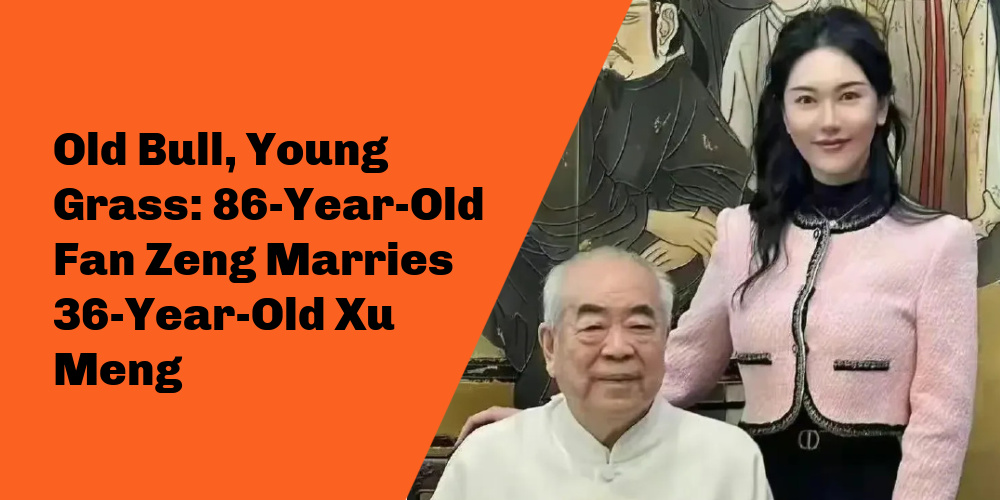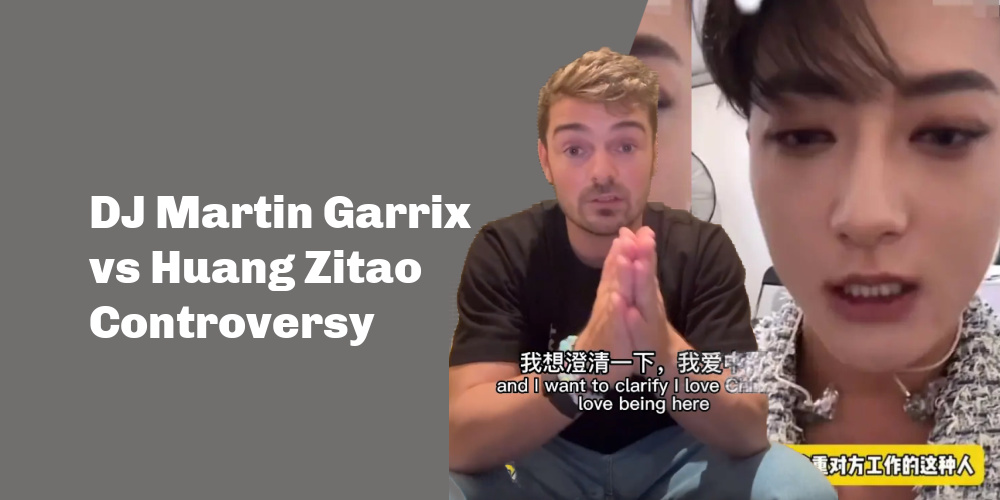Featured
Weibo Watch: The Battle for the Bottom Bed
“The battle for the lower bunk beds” (“下铺之争”) is a reflection of society and generational difference in China, touching upon expectations regarding the respect younger individuals should show the elderly.
Published
3 months agoon

PREMIUM NEWSLETTER | ISSUE #27
This week’s newsletter:
◼︎ 1. Editor’s Note – Battle for the Bottom Bed
◼︎ 2. What’s Been Trending – A closer look at the featured stories
◼︎ 3. What More to Know – Five bit-sized trends
◼︎ 4. What’s the Drama – Top TV to watch
◼︎ 5. What’s Noteworthy – Zara x Haidilao
◼︎ 6. What’s Popular – Martin Garrix x Huang Zitao
◼︎ 7. What’s Memorable – Social media in times of flood
◼︎ 8. Weibo Word of the Week – Coffin rooms
Dear Reader,
Sometime around last summer, a significant debate about train etiquette began trending on Chinese social media. Central to the discussion was a question that attracted over 190 million views on Weibo: Can passengers bring their own “bed curtains”?
The curtains in question (床帘 chuánglián, also 火车遮挡帘 huǒchē zhēdǎnglián) are often used in the cheapest class of sleeper cabins on Chinese trains, known as hard sleepers (硬卧 yìngwò). In these cabins, each compartment features six bunk beds, with three beds on each side separated by a small table. Only the bottom bunk offers sufficient space for seating and is also the most expensive among the three.

Example of Chinese hard sleeper train compartment, image via Sohu.
Train carriages usually comprise 11 semi-open compartments, each featuring a corridor and two foldable seats per cubicle. With so many people in one carriage, noise can become an issue, and privacy can be hard to come by.
“Bed curtains” have emerged as a popular strategy to combat these nuisances, creating a somewhat private and quiet space on trains without disturbance from fellow travelers. Essentially, they are pieces of fabric that can be easily secured above or on the sides of the bunk bed using clips or ropes. These days, Taobao sells them in various colors and patterns.

Bunk bed curtains, sold on e-commerce sites likes Taobao, turn lower bunk beds in a more private space.
Recently, the debate over these curtains reignited on Chinese social media, particularly focusing on how their use creates an additional barrier for other passengers, especially the elderly, to sit on the lower beds. This sparked discussions about whether younger passengers should consider swapping their lower bunk beds with senior passengers, who may find it difficult to access the middle and upper berths, where it’s often impossible for them to sit up straight.
The catalyst for these discussions was a viral video featuring an elderly lady confronting two young people who had hung covers on their bottom bunk beds. She accused them of selfishness for not allowing older passengers with upper bunk tickets to sit on their beds.
Many commenters expressed support for the young passengers in the video, emphasizing that they are not obliged to let other passengers sit on their bed. The topic unleashed a flood of stories of train annoyances about strangers sitting on people’s bottom beds, depriving them of privacy.
The topic further popularized the use of bed curtains, with commenters writing: “I dislike others sitting on my bed but find it difficult to confront them; this is such a clever solution!”
There are currently no explicit regulations prohibiting or allowing these bed curtains, as long as they do not cause inconvenience or block access to other bunks, but many people view them as “uncivilized” and “impolite.”
The online critics of bed curtains often fondly recall their experiences traveling on China’s sleeper trains in past decades. They reminisce about meeting strangers, sharing snacks, playing cards, and forming friendships—experiences characterized by less privacy, but more camaraderie.
As this discussion has been dubbed “the battle for the lower bunk beds” (“下铺之争”), it’s evident that it encompasses more than just seating arrangements. Some say it is a reflection of the current society. It touches upon societal shifts, traditional/cultural expectations regarding the respect younger individuals should show the elderly, and mostly, generational differences.
Unlike the older generations preceding them, Chinese younger generations, products of the one-child policy and growing up amid increasing prosperity, have undergone a significant transformation in their familial roles over the past decades. Not only were they both pampered and pressured to succeed, they also often enjoyed having their own rooms from a young age. Their upbringing has fostered a more individualistic perspective, a heightened emphasis on personal happiness, and a greater value placed on privacy.
Additionally, while previous generations typically ‘served’ their parents, you see that parents often prioritize ‘serving’ their children of younger generations, treating them as equals within the household. This has also led to different views on the interaction between younger and older members of society. Many younger people won’t accept Chinese seniors acting rude or entitled simply because of their age.
The “battle for the bottom bed” essentially symbolizes clashes between different generations. While older generations value communal experiences and respect for elders, younger generations assert their individual rights and prioritize personal space. Given the insufficient seating for all six passengers in current hard sleepers, they argue that it’s China Railways’ responsibility to adapt the layout to better cater to passengers’ needs.
Meanwhile, some Chinese ‘experts’ are cited by media, encouraging young people who have bought lower berths to be understanding and swap with the elderly for their convenience. A related hashtag on the matter was viewed more than 400 million times on Weibo, and the most popular replies basically told the experts to shove their suggestion up theirs. “I have the right to what I pay for,” some said: “If they need a lower bed, let them pay for a lower bed.”
Some bloggers comment that the very fact that this seemingly trivial topic has become such a major topic of debate on Chinese social media is a sign of a “regression in morality.” Some propaganda accounts raise the example of the humble PLA soldier Lei Feng, who would help out other passengers and train staff while traveling, instead of occupying a seat. While most do not expect the same of modern-day travelers, they do think that people, young and old, should show a little more understanding for each other.
In this light, another video garnered attention. It showed an elderly woman on a train politely requesting to swap a top bunk with a young passenger occupying a bottom bunk. The request was made on behalf of her 83-year-old travel companion, and they were happy to compensate for the price difference. That video received praise from netizens, who expressed that it’s the attitude that matters. The young passenger swapped beds with the older lady and did not accept payment for it.
In the end, it’s clear that kindness and empathy are cross-generational, and that communication always helps bridging differences.
In case you don’t feel like bridging differences on your next hard sleeper train, however, here’s the link to the bed curtains.
Warm regards,
– Manya Koetse & Miranda Barnes
What’s Been Trending

1: Chengdu Disneyland | Chengdu Disney is the latest viral hotspot on Chinese social media, and it’s probably unlike anything you’d imagine. How did an ordinary outdoor senior gym in a local Chengdu neighborhood become nationally known as ‘Chengdu Disney’? By mixing online trends with real-life fun, blending foreign styles with local charm, and adding a dash of humor and absurdity, Chengdu now boasts its very own ‘Chengdu Disney.’ We explain the trend here👇🏼

2: Unleashing Flood of Stories | The recent marriage announcement of the renowned Chinese calligrapher/painter Fan Zeng and Xu Meng, a Beijing TV presenter 50 years his junior, has sparked online discussions about the life and work of the esteemed Chinese artist. Some netizens think Fan lacks the integrity expected of a Chinese scholar-artist.

3: Yellen’s Favorites | Earlier in April, Yellen concluded her second trip to Beijing within a year, and once again, it’s not her official talks but rather her choices in food and drink venues that are sparking discussion on social media. From Yunnan classics to fusion cuisine, these are Janet Yellen’s picks for dining and drinking in Beijing.
What More to Know
◼︎ 🌧️ Guangdong Floods | Flooding, landslides, power outages. It’s been a rough few days in Guangdong. From the provincial capital Guangzhou to smaller cities like Shaoguan, Zhaoqing, and Qingyuan, exceptionally heavy rainfall since April 18 has brought significant problems to various areas. At least 4 deaths have been reported, with 10 people still missing. More than 100,000 people have been evacuated. The regions hardest hit are along the Beijiang River, which flooded on April 21. This marks the second flood of the river this year, with the first occurring on April 7, marking the earliest date in the season since floods in major Chinese rivers began being numbered in 1998. As with previous floods, social media is used as a channel to warn people about the ongoing situation, with further rainfall expected. Meanwhile, state media are honoring rescue workers as local heroes, or ‘those going against the tide’ (nìxíngzhě 逆行者).
◼︎ 🌋 Ijen Crater Death | A 31-year-old Chinese tourist tragically lost her life after falling from the edge of Indonesia’s Ijen volcano while attempting to take a photo. She tripped over her own long skirt, plummeting from a height of 75 meters early on the morning of April 20, while the tourists were there to witness the sunrise. With the May 1st holiday approaching, Chinese authorities, through social media, are using this incident as a cautionary tale to warn tourists of the hazards of prioritizing that ‘perfect social media photo’ over personal safety.
◼︎ 💀 Another University Poisoning Case | One recurring case that surfaces on Weibo is that of Zhu Ling, the female victim in the notorious 1995 thallium poisoning incident at Beijing’s Tsinghua University. Although Zhu Ling survived, she was left paralyzed and reliant on her parents for care for the rest of her life. The case remains unsolved, with many pointing to her roommate as the primary suspect. Now, a new suspected poisoning incident at a university has gained attention, following the death of a 25-year-old male student at Xiangtan University due to organ failure after seeking medical treatment. His 27-year-old roommate is currently under suspicion and has been detained. This is a case that is likely to draw further scrutiny in the time to come.
◼︎ 🏃♂️ Marathon Controversy | There was something fishy about the conclusion of the Beijing Half Marathon and the four runners at the finish line. In a video clip that went viral on Chinese social media (see here), viewers observed that three African runners seemed to intentionally slow down to allow Chinese competitor He Jie (何杰) to win the gold medal. Now, the Beijing Half Marathon Organizing Committee has announced the disqualification of all four runners for “breaching the rules of the competition,” nullifying their results, and reclaiming their trophies and medals. The Chinese Athletics Association has also introduced new regulations for discipline management in national events. It appears that the three African runners were “pace setters” who were not intended to be competing athletes, and sponsor/partner Xtep (特步), a sports equipment company, was responsible for not properly identifying them. Consequently, the company has been terminated as a partner. Marathon fraud and the importance of properly regulating major sports events has become a recurring topic on Chinese social media. Last October, the Chinese Athletics Association issued an emergency notice to standardize and regulate China’s national marathon and running events more effectively after Chinese marathon runner Yin Shunjin appeared to be intentionally obstructed by a support vehicle, forcing him to navigate around it and costing him valuable time in the crucial final two minutes of the marathon.
◼︎ 🎲 Little Tuan Tuan Goes to Jail | Popular Chinese influencer “Little Tuan Tuan” (一条小团团), who has millions of followers on the Douyu livestreaming app, became a top trending topic on Chinese social media on April 23 after news came out that she had been arrested. The famous game livestreamer had already stopped airing since last month, but it only now became known that she is suspected of engaging in large-scale illegal gambling activities. In late 2023, Douyu’s chairman and CEO Chen Shaojie was also arrested for allegedly hosting online gambling, which is illegal in mainland China. At the time, state media already reported that the arrest of Chen may lead to a group of top game anchors being implicated due to their involvement in gambling and money laundering. After the earlier arrest of four other anchors, Tuan Tuan is the latest livestream host to be arrested, signaling a zero tolerance approach towards gambling activities in China’s game-focused livestreaming world. Little Tuan Tuan could face up to five years in prison.
What’s the Drama

Best Choice Ever (Chéng Huān Jì 承欢记) is the latest Chinese TV drama hit. Produced by CCTV and simultaneously broadcasted on CCTV-8 and Tencent, it premiered on April 9, and some are already calling it the best romcom drama of the year. This urban family/romance drama centers around the story of Mai Chenghuan (麦承欢), a post-95 young woman living in Shanghai, who is preparing to marry her boyfriend Xin Jialiang (辛家亮), who comes from a wealthy family. However, when Chenghuan’s mum is doing all she can to meddle in their relationship, Mai Chenghuan must break free from her mother’s overbearing influence and focus on her own personal growth.
Noteworthy:
▶️ This drama is based on a book by the same name by Hong Kong writer Yi Shu or Isabel Nee Yeh-su, who is known for the strong, intelligent female characters in her stories.
▶️ The main protagonist is played by the super popular Chinese actress Yang Zi (杨紫), who previously starred in hit series such as Ode to Joy (欢乐颂) and The Oath of Love (余生).
▶️ This series is also airing in Thailand starting from April 29, but you won’t hear Yang Zi speaking Chinese there; the entire show will be dubbed in Thai.
▶️ The Shanghai Culture and Tourism office has also been involved in this production, that features some pretty scenes from around Shanghai, which is drawing in young visitors wanting to visit film locations like the Zhapu Road Bridge and Huaihuai Mansion.
You can watch Best Choice Ever online here (with English subtitles) via YouTube.
What’s Noteworthy

A short dress sold by Zara has gone viral in China for looking like the aprons used by the popular Chinese hotpot chain Haidilao. “I really thought it was a Zara x Haidialo collab,” some customers commented. Others also agree that the first thing they thought about when seeing the Zara dress was the Haidilao apron.
What’s Popular

Dutch DJ Martin Garrix found himself embroiled in controversy following the first F1 China Grand Prix Music Festival in Shanghai, which took place from Friday to Sunday. Garrix was allegedly supposed to perform together with Chinese singer Huang Zitao (黄子韬), who initially complained via livestream that the DJ did not show up to their joint rehearsal, and then claimed the DJ showed disrespect by performing his song without him being present on stage. On Weibo, one hashtag about the incident attracted over 160 million views.
Both Huang and Garrix are popular on Weibo, where the Chinese singer has over 66 million fans while the Dutch DJ has more than 360,000 followers.
In response, Garrix promptly posted a video on Weibo refuting what he called “misinformation and lies,” asserting that he and Huang Zitao were never scheduled to perform together. Hearing about Huang’s complaints, he still invited him up on stage, but he never showed up (Garrix claimed he was hiding in the bathroom). Following this, the event organizers issued an apology for the confusion.
Online, opinions remain divided, with some defending Garrix and labeling Huang a “crybaby,” while others support Huang, arguing that Garrix was rude for not wanting to share the stage with the Chinese singer. Either way, it seems the two performers won’t be sharing a beer, nor a stage, anytime soon.
What’s Memorable

This pick from our archive – in light of the current floods – revisits the flood of three years ago. The social media trends during China’s heavy rainfall and floods in Henan in July of 2021 show the multidimensionality of online communication in times of disaster. Facing the devastating downpours, Weibo became a site for participation, propaganda, and some controversial profiting.👇
Weibo Word of the Week

“Coffin Room” | Our Weibo Word of the Week is “Coffin Room” (guāncái fáng 棺材房), or even “Mini Coffin Room” (mínǐ guāncái fáng 迷你棺材房), referring to extremely tiny spaces being rented out at rooms.
The term “coffin room” isn’t new; it previously appeared in mainstream media to describe small cubicles rented out in Hong Kong to people who couldn’t afford larger spaces in the exorbitantly expensive housing market. However, it has recently resurfaced on Chinese social media to describe similarly cramped spaces in Shanghai.
One viral video showcased a rental room of about 5m² (approximately 53.82 square feet) with a makeshift sleeping space right behind a toilet, measuring about two meters long and one meter wide (approximately 6.56 feet long and 3.28 feet wide), all for a monthly rent of 300 yuan ($41). This so-called “coffin room” sparked controversy, with many deeming it absurd and a testament to Shanghai’s overheated housing market. However, the landlord mentioned that the room was already rented out to a Didi driver the day it was posted. See video here.
This is an on-site version of the Weibo Watch newsletter by What’s on Weibo. Missed last week’s newsletter? Find it here. If you are already subscribed to What’s on Weibo but are not yet receiving this newsletter in your inbox, please contact us directly to let us know.
Stories that are authored by the What's on Weibo Team are the stories that multiple authors contributed to. Please check the names at the end of the articles to see who the authors are.

Also Read
China Memes & Viral
“Bye Bye Biden”: Biden’s Many Nicknames in Chinese
Throughout the years, Biden has received many nicknames on Chinese social media.
Published
5 days agoon
July 22, 2024
Our Weibo phrase of the week is Bye Bye Biden (bài bài Bàidēng 拜拜拜登). As news of Biden dropping out of the presidential race went viral on Weibo early Monday local time, it’s time to reflect on some of the popular nicknames and phrases given to US President Joe Biden on Chinese social media.
🔹 Biden in Chinese: Bàidēng 拜登
Biden in Chinese is generally written pronounced and written as Bàidēng 拜登. Although the character 拜 (bài) means “to pay respect, to worship” and 登 (dēng) means “to ascend, to climb,” they’re used here primarily for their phonetic similarity. The characters chosen are neutral to avoid any negative implications in the official translation of Biden’s name.
Why are non-Chinese names translated into Chinese at all? With English and Chinese being vastly different languages with entirely different phonetics and scripts, most Chinese people find it difficult to pronounce a foreign name written in English. Writing foreign names in Chinese not only standardizes them but also makes pronunciation and memorization easier for Chinese speakers.
🔹 Bye Biden: Bài Bài Bàidēng 拜拜拜登
Because Biden is Bàidēng, and the Chinese for ‘bye bye’ is written as bài bài 拜拜, some netizens quickly created the wordplay “bài bài Bàidēng” 拜拜拜登 (“bye bye Biden”) upon hearing that Biden would not seek reelection. Try saying it out loud—it almost sounds like you’re stammering.
🔹 Old Joe: Lǎo Dēng Dēng 老登登
Another common farewell greeting to Biden seen online is “bài bài lǎo dēng dēng” 拜拜老登登, which sounds cute due to the repetition of sounds.
“Old Biden” or “lǎo dēng dēng” 老登登 is a common online nickname for Biden in Chinese. The reduplication of the 登 (dēng) makes it sound playful and affectionate, while the “old” prefix is commonly used when referring to someone older. It’s similar to calling someone “Old Joe” in English.
🔹 Biden Variations: 拜灯, 白等, 败蹬
Let’s look at some other ways Biden is nicknamed online:
Besides the official way of writing Biden with the 拜登 Bàidēng characters, there are also other variations:
拜灯: bài dēng
白等: bái děng
败蹬: bài dèng
These alternative ways of writing Biden’s name are not neutral. Although the first variation is not necessarily negative (using the formal Biden 拜 bài character but with ‘Light’ 灯 dēng instead of the other 登 ‘dēng’), the other two variations are usually used in more negative contexts.
In 白等 (bái děng), the first character 白 (bái) means “white,” which can evoke associations with old age due to white hair (白发). The character 等 (děng) means “to wait,” and the combination can imply being old and sluggish.
败蹬 (bài dèng) is typically used by netizens to reflect negative sentiments towards the American president. The characters separately mean 败 (bài): “to be defeated,” “to fail,” and 蹬 (dèng): “to step on,” “to kick.” This would never be used by official media and is also often used by netizens to circumvent censorship around a Biden-related topic.
🔹 Revive the Country Biden: Bài Zhènhuá 拜振华
Then there is 拜振华 Bài Zhènhuá: revive the country Biden
In recent years, Biden has come to be referred to with the Chinese nickname “Revive the Country Biden,” also translatable as ‘Thriving China Biden’. This nickname has circulated online since 2020 and matches one previously given to former President Trump, namely “Build the Country Trump” (Chuān Jiànguó 川建国).
The idea behind these humorous monikers is that both Trump and Biden are seen as benefitting China by doing a poor job in running the United States and dealing with China.
🔹 Sleepy King: Shuì wáng 睡王
Shuì wáng 睡王, Sleepy King, is another common nickname, similar to the English “Sleepy Joe.” During and after the 2020 American presidential elections, there were numerous discussions on Chinese social media about ‘Trump versus Biden.’ Many saw it as a contest between the ‘King of Knowing’ (懂王) and the ‘Sleepy King’ (睡王).
These nicknames were attributed to Trump, who frequently boasted about his unparalleled understanding of various matters, and Biden, who gained notoriety for being older and tired. Viral videos, some manipulated, showed him nodding off or seemingly disoriented. The name ‘Sleepy King’ then stuck.
🔹 Grandpa Biden: Bài Yéyé 拜爷爷
Throughout the years, Biden has also been nicknamed Bài yéyé 拜爷爷, “Grandpa Biden.” This is usually more affectionate, though it emphasizes his age—Trump is not much younger than Biden and is not nicknamed ‘Grandpa Trump.’
Another similar nickname is lǎo bái 老白, “Old White,” referring to Biden’s age and white hair. 白 (bái, white) can also be a surname in Chinese. This nickname makes it seem like Biden is an old, familiar friend.
On Weibo, many speculate that American Vice President Kamala Harris will be the new candidate for the Democrats, especially since she’s been endorsed by Biden. Many have little confidence that she can compete against Trump. Her Chinese name is Kǎmǎlā Hālǐsī 卡玛拉·哈里斯, commonly referred to as ‘Harris’ (Hālǐsī).
In light of the latest developments, some netizens jokingly write: “Bye bye Biden, Ha ha ha, Harris.” (Bài bài, Bàidēng. Hā hā hā, Hālǐsī 拜拜,拜登。 哈哈哈,哈里斯). With a new Democratic candidate entering the presidential race, we can expect a fresh batch of creative nicknames to join the mix on Chinese social media.
Want to read more? Also read: Why Trump has Two Different Names in Chinese.
By Manya Koetse
Spotted a mistake or want to add something? Please let us know in comments below or email us. First-time commenters, please be patient – we will have to manually approve your comment before it appears.
©2024 Whatsonweibo. All rights reserved. Do not reproduce our content without permission – you can contact us at info@whatsonweibo.com.
China Memes & Viral
Enjoying the ‘Sea’ in Beijing’s Ditan Park
This “seaview” spot in Beijing’s Ditan Park has become a new ‘check-in spot’ among Chinese Xiaohongshu users and influencers.
Published
2 weeks agoon
July 15, 2024
“‘The sea in Ditan Park’ is a perfect example of how Xiaohongshu netizens use their imagination to change the world,” a recent viral post on Weibo said (“地坛的海”完全可以入选《红薯人用想象力颠覆世界》的案例合集了”).
The post included screenshots of the Xiaohongshu app where users share their snaps of the supposed seaview in Beijing’s Ditan Park (地坛公园).
Ditan, the Temple of Earth Park, is one of the city’s biggest public parks with tree-lined paths and green gardens in Beijing, not too far from the Lama Temple in Dongcheng District, within the Second Ring Road.
On lifestyle and social media platform Xiaohongshu, users have recently been sharing tips on where and how to get the best seaview in the park, finding a moment of tranquility in the hustle and bustle of Beijing city life.

Post on Xiaohongshu to get the seaview in Ditan Park.
But there is something peculiar about this trend. There is no sea in Ditan Park, nor anywhere else in Beijing, for that matter, as the city is located inland.
The ‘seaview’ trend comes from the view of one of the park’s stone walls. In the late afternoon, somewhere around 16pm, when the sun is not too bright, the light creates an optical illusion from a certain viewpoint in the park, making the wall behind the bench look like water.

You do have to capture the right light at the right moment, or else the effect is non-existent.

Some photos taken at other times of the day clearly show the brick wall, which actually doesn’t look like a sea at all.

Although the ‘seaview in Ditan’ trend is popular among many Xiaohongshu users and influencers who flock to the spot to get that perfect picture, there are also some social media commenters who criticize the trend of netizens always looking for the next “check-in spot” (打卡点).
There are also other spots popular on social media that look like impressive areas but are actually just optical illusions. Here are some examples:


One Weibo user suggested that this trend is actually not about people appreciating the beauty around them, but more about chasing the next social media hype.

The Ditan seaview trend is not entirely new. In May of this year, Beijing government already published a post about the “sea” in Ditan becoming more popular among social media users who especially came to the park for the special spot.
The Beijing Tourism Bureau previously referred to the spot as “the sea at Ditan Park that even Shi Tiesheng didn’t discover” (#在地坛拍到了史铁生都没发现的海#).
Shi Tiesheng (1951–2010) is a famous Chinese author from Beijing whose most well-known work, “Me and Ditan,” reflects on his experiences and contemplations in Ditan Park. At the age of 21, Shi Tiesheng suffered a spinal cord injury that left him paralyzed from the waist down. Ditan Park became a place for him to ponder life, time, and nature. Despite the author’s deep connection with the park, he never described seeing a “sea” in the walls.

Shi Tiesheng in Ditan Park.
If you are visiting Ditan Park and would like to check out the ‘sea’ yourself in the late afternoon, there are guides on Xiaohongshu explaining the route to the viewpoint. But it should not be too difficult to find this summer—just follow the crowds.

By Manya Koetse and Ruixin Zhang
Spotted a mistake or want to add something? Please let us know in comments below or email us. First-time commenters, please be patient – we will have to manually approve your comment before it appears.
©2024 Whatsonweibo. All rights reserved. Do not reproduce our content without permission – you can contact us at info@whatsonweibo.com.
Popular Reads
-

 China Insight3 months ago
China Insight3 months agoThe Tragic Story of “Fat Cat”: How a Chinese Gamer’s Suicide Went Viral
-

 China Music4 months ago
China Music4 months agoThe Chinese Viral TikTok Song Explained (No, It’s Not About Samsung)
-

 China Digital10 months ago
China Digital10 months agoToo Sexy for Weibo? Online Discussions on the Concept of ‘Cābiān’
-

 China Arts & Entertainment12 months ago
China Arts & Entertainment12 months agoBehind 8 Billion Streams: Who is Dao Lang Cursing in the Chinese Hit Song ‘Luocha Kingdom’?






